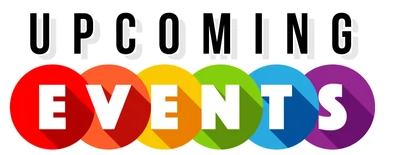Upcoming Events
Save the Date: Annual Ohio PTA Convention, Friday, April 14th – Sunday, April 16th, 2023 at the Nationwide Hotel Conference Center, Lewis Center, Ohio.
Important Information
IRS 990 filing and the Ohio Charitable Registration, on the checklist, are required to be completed by November 15th, 2022."
First-time dues remission must be sent via MemberHub by November 30, 2022, to remain a unit in good standing.
We offer our units a free IRS990 filing service- File990.org
See your bylaws - Article IV: Section 3 and Section 5 for more information.
Article IV—Relationship with National PTA and Ohio PTA
-Section 3. This local PTSA to be in good standing with Ohio PTA:
a. Adheres to the purposes and basic policies of PTA,
b. Remits the initial payment of National and Ohio PTA dues to the Ohio PTA by November 30, 2022.
-Section 5. This local PTSA not in good standing by:
a. November 30:
1. Shall not be eligible for awards.
2. Shall have their unit removed from the mailing list of the Ohio PTA.
3. Shall not be eligible to participate in the Reflections program of the Ohio PTA.
Ohio PTA Nominating Committee is Looking for Leaders!
Advocating for our families and making every child’s potential a reality takes the passion and dedication of many volunteers. Leaders at the state level of PTA come from all corners of our state. The legacy of Ohio PTA continues to thrive because of the leaders developed from the local unit, council, and region PTAs as well as those who bring specific volunteer and/or professional expertise to our advocacy. PTA leaders have diverse talents and abilities, and each person adds something unique to the team. If you are interested in serving on the Ohio PTA Board of Directors - please see the attached letter of Interest. The deadline for all materials to be received by the Nominating Committee chair (beresgerri@gmail.com) is October 31st, 2022.
Congratulations and a welcome to the new chartered units:
Ferdinand Schumacher CLC PTA, Akron Council
AF Falcons PTSA, Austintown Council
Euclid Early Learning Village, Euclid Council
Helping Hands and put the T in PTA Awards
Ohio PTA has two awards for units ( in working with their councils OR if you don't have a council ) to participate in recognizing outstanding individuals. The Helping Hand Award is for a volunteer who has made a positive impact on the lives of children and always helping at the PTA. The T in PTA is a way to recognize a certified staff that always goes above and beyond for the PTA, and its programs, or has made a positive impact in the lives of children. Further guidelines are on the forms- see attached!
Resources
Joe Mancini is the Ohio Connectivity Champions Coordinator, an Ohio Department of Education grant-funded program that assists families to find affordable and reliable internet connectivity. Ohioans with the Affordable Connectivity Program (ACP), a $30 discount on internet costs for eligible families. Here is the Facebook page, https://www.facebook.com/
For more information email Joe Mancini at joe.mancini@managementcouncil.
Social Media – Stay Informed!!
Social Media Spotlight: We update our Ohio PTA Facebook page often, have you friended us on Facebook? https://www.facebook.com/
Thanks for all you do!! We appreciate your Partnership!!




